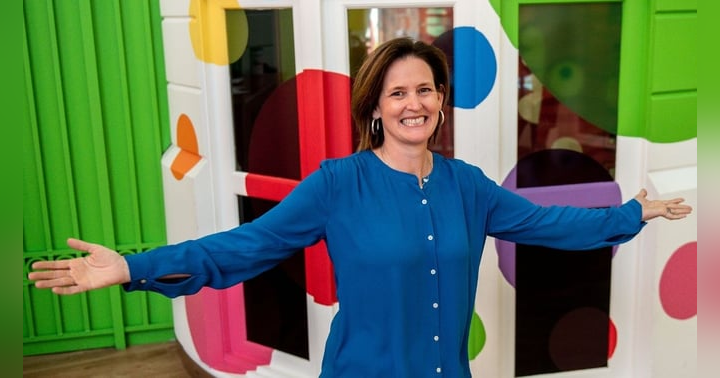
Let's delve into the profound impact of active listening, peer support, and community involvement on mental health prevention and healing. We'll explore practical strategies for initiating conversations with loved ones who may be struggling and encourage them to seek help. This post serves as an extension of our recent episode, When Silence Hurts: The Urgent Need For Honest, Healing Conversations, where we brought together mental health experts, advocates, and community leaders to discuss these critical issues. Join us as we uncover the power of connection in navigating the complexities of mental health.
Introduction: The Power of Connection
Human beings are fundamentally social creatures. We thrive on connection, empathy, and a sense of belonging. Yet, in today's fast-paced and often isolating world, these fundamental needs are often unmet, leading to a rise in mental health challenges. Connection is not merely a pleasant addition to our lives; it is a cornerstone of our well-being. When we feel connected to others, we experience a greater sense of purpose, resilience, and hope. Conversely, isolation and loneliness can exacerbate feelings of anxiety, depression, and despair.
The power of connection lies in its ability to create a safe space for vulnerability and honesty. When we feel heard and understood, we are more likely to open up about our struggles and seek help. Connection fosters a sense of community, reminding us that we are not alone in our experiences. It provides a network of support that can help us navigate difficult times and build stronger, healthier lives.
The Crisis We Face: Mental Health Realities
The statistics surrounding mental health are alarming and paint a stark picture of the crisis we face. According to the National Institute of Mental Health (NIMH), nearly one in five U.S. adults experiences mental illness each year. These conditions can range from mild anxiety and depression to severe disorders such as schizophrenia and bipolar disorder.
Furthermore, suicide rates have been steadily increasing in recent years, making it a leading cause of death in the United States. The impact of mental health challenges extends beyond the individual, affecting families, communities, and the economy. Untreated mental illness can lead to decreased productivity, increased healthcare costs, and higher rates of substance abuse and homelessness.
These statistics are not just numbers; they represent real people struggling with immense pain and suffering. It is crucial that we acknowledge the severity of the mental health crisis and work together to create a more supportive and understanding society.
Breaking Down the Stigma: Why Honest Conversations Matter
One of the biggest barriers to addressing the mental health crisis is the pervasive stigma that surrounds it. Stigma is a negative attitude or belief that leads people to fear, reject, or discriminate against individuals with mental illness. This stigma can manifest in various ways, including stereotypes, prejudice, and discrimination.
The stigma associated with mental health often prevents people from seeking help. They may fear being judged, labeled, or ostracized by their families, friends, or coworkers. They may worry about the impact on their careers or social lives. As a result, many individuals suffer in silence, delaying or avoiding treatment altogether. Breaking down this stigma requires honest and open conversations about mental health. We need to challenge the misconceptions and stereotypes that perpetuate fear and discrimination. We need to create a culture of acceptance and understanding, where people feel safe to talk about their struggles without shame or judgment.
These conversations should take place in our homes, schools, workplaces, and communities. We need to educate ourselves and others about mental health conditions and promote empathy and compassion. By breaking down the stigma, we can encourage more people to seek help and create a more supportive environment for those who are struggling.
Understanding the Unique Challenges
While mental health challenges can affect anyone, certain groups face unique and specific obstacles. Veterans, for example, often grapple with post-traumatic stress disorder (PTSD), depression, and substance abuse as a result of their experiences in combat. First responders, such as police officers, firefighters, and paramedics, are also at high risk for mental health issues due to the stressful and traumatic nature of their work.
Members of the LGBTQ+ community may experience higher rates of anxiety, depression, and suicide due to discrimination, stigma, and lack of acceptance. Individuals from marginalized racial and ethnic groups may face additional barriers to mental health care, including cultural stigma, language barriers, and lack of access to culturally competent providers. Understanding these unique challenges is essential for developing targeted interventions and providing culturally sensitive care. We need to recognize that mental health is not a one-size-fits-all issue and tailor our approaches to meet the specific needs of different populations.
Active Listening: The First Step to Healing
Active listening is a powerful tool that can make a significant difference in someone's mental health journey. It involves fully focusing on what the other person is saying, without interrupting, judging, or offering unsolicited advice. Active listening requires empathy, patience, and a genuine desire to understand the other person's perspective.
To practice active listening, start by creating a safe and non-judgmental space. Make eye contact, nod your head, and use verbal cues such as "I see" or "Tell me more" to show that you are engaged. Pay attention to the person's body language and tone of voice, as these can provide valuable insights into their emotions. Avoid interrupting or changing the subject. Instead, ask open-ended questions to encourage the person to elaborate on their thoughts and feelings.
Most importantly, resist the urge to offer solutions or advice unless specifically asked. Sometimes, people simply need to be heard and validated. Active listening can help them feel understood, supported, and less alone. It can also strengthen relationships and build trust.
The Role of Peer Support and Community
Peer support and community involvement play a vital role in mental health prevention and healing. Peer support involves individuals with shared experiences offering each other emotional support, encouragement, and practical assistance. Peer support groups can provide a sense of belonging, reduce feelings of isolation, and empower individuals to take control of their mental health.
Community involvement can also promote mental well-being by providing opportunities for social interaction, purpose, and contribution. Volunteering, joining a club or organization, or participating in community events can help individuals feel connected to something larger than themselves and build stronger social networks. When people feel supported by their peers and connected to their communities, they are more likely to thrive.
Practical Tips for Starting Conversations
Starting a conversation about mental health can be daunting, but it is an essential step in helping someone who may be struggling. Here are some practical tips for initiating these conversations:
- Choose the right time and place: Find a quiet and private setting where you can talk without interruptions.
- Express your concern: Start by expressing your genuine concern for the person's well-being. For example, you could say, "I've noticed you haven't seemed like yourself lately, and I wanted to check in on you."
- Use "I" statements: Focus on your own observations and feelings rather than making accusations or judgments. For example, instead of saying, "You're always so negative," try saying, "I've noticed you've been expressing a lot of negative thoughts lately, and I'm concerned."
- Listen actively: Give the person your full attention and listen without interrupting.
- Validate their feelings: Acknowledge and validate their emotions, even if you don't fully understand them. For example, you could say, "That sounds really difficult" or "I can see why you're feeling that way."
- Offer support: Let the person know that you are there for them and that you want to help them get the support they need.
- Encourage professional help: Gently encourage the person to seek professional help from a therapist, counselor, or psychiatrist.
Addressing Youth Mental Health Concerns
Youth mental health is a growing concern, with rates of anxiety, depression, and suicide increasing among adolescents and young adults. Several factors contribute to these challenges, including academic pressure, social media, bullying, and family stress. It is crucial that we address these concerns and provide young people with the support they need to thrive. Parents, educators, and community leaders can play a vital role in promoting youth mental health. They can create safe and supportive environments, teach coping skills, and encourage open communication. They can also connect young people with mental health resources and advocate for policies that support their well-being.
The Intersection of Mental Health and Addiction
Mental health and addiction are often intertwined, with many individuals experiencing both conditions simultaneously. This is known as co-occurring disorders or dual diagnosis. Mental health conditions can increase the risk of substance abuse, and substance abuse can exacerbate mental health symptoms. It is essential to treat both conditions concurrently to achieve lasting recovery. Integrated treatment approaches address both the mental health and substance abuse issues at the same time, providing individuals with comprehensive and coordinated care. These approaches may include therapy, medication, and support groups.
Hope and Healing: You Are Not Alone
If you are struggling with your mental health, please know that you are not alone. Many people experience mental health challenges, and help is available. Reaching out for support is a sign of strength, not weakness. There are many resources that can provide you with the care and support you need to heal and thrive. These resources include:
- Therapists and counselors
- Psychiatrists
- Support groups
- Mental health organizations
- Crisis hotlines
Remember that recovery is possible, and you deserve to live a fulfilling and meaningful life. Don't give up hope. With the right support and treatment, you can overcome your challenges and build a brighter future.
Available Resources in Harford County and Beyond
There are numerous resources available to support mental health in Harford County and beyond. Some local resources include:
- Harford Counseling (Jennifer Redding): harfordcounseling.com
- Local Warm Line / Crisis Line (Harford County): 1-800-NEXT-STEP – local warm and crisis line; can come to you in-county, no cost
- Rage Against Addiction (Wendy Beck): rageagainstaddiction.org – sober living for women and recovery support
- Voice of a Child (Nolanda Robert): voiceofachild.us – child and adolescent mental health practice
- Elemental Health and Wellness Associates (Laura Crowder): (Private practice; contact info available)
- Laura's Client Contact Number: 410-776-9547 (call or text for help or referrals)
- Klein Family Crisis Center: klein-family-center
National resources include:
- 988 Suicide & Crisis Lifeline: 988 for civilians; 988 + 1 for military/veterans
- NAMI (National Alliance on Mental Illness): NAMI
How to Get Involved and Be The One
You can make a difference in the lives of those affected by mental health challenges. Here are some ways to get involved:
- Educate yourself about mental health conditions
- Challenge stigma and discrimination
- Practice active listening
- Offer support to those who are struggling
- Volunteer your time or donate to mental health organizations
- Advocate for policies that support mental health
The "Be The One" program through the American Legion focuses on veteran suicide prevention through peer support and connection. You can learn more at be-the-one. By taking action, you can help create a more supportive and understanding community for everyone.
Conclusion: The Strength in Reaching Out
In conclusion, addressing the mental health crisis requires a collective effort. By prioritizing connection, breaking down stigma, and providing access to quality care, we can create a society where everyone feels supported and empowered to thrive. Remember, reaching out for help is a sign of strength, not weakness. If you or someone you know is struggling, please don't hesitate to seek support. As we discussed in our episode, When Silence Hurts: The Urgent Need For Honest, Healing Conversations, honest and healing conversations are crucial. The simple act of listening and being there for someone can make all the difference. Let's work together to build a community where mental health is valued and everyone has the opportunity to live a fulfilling life.










